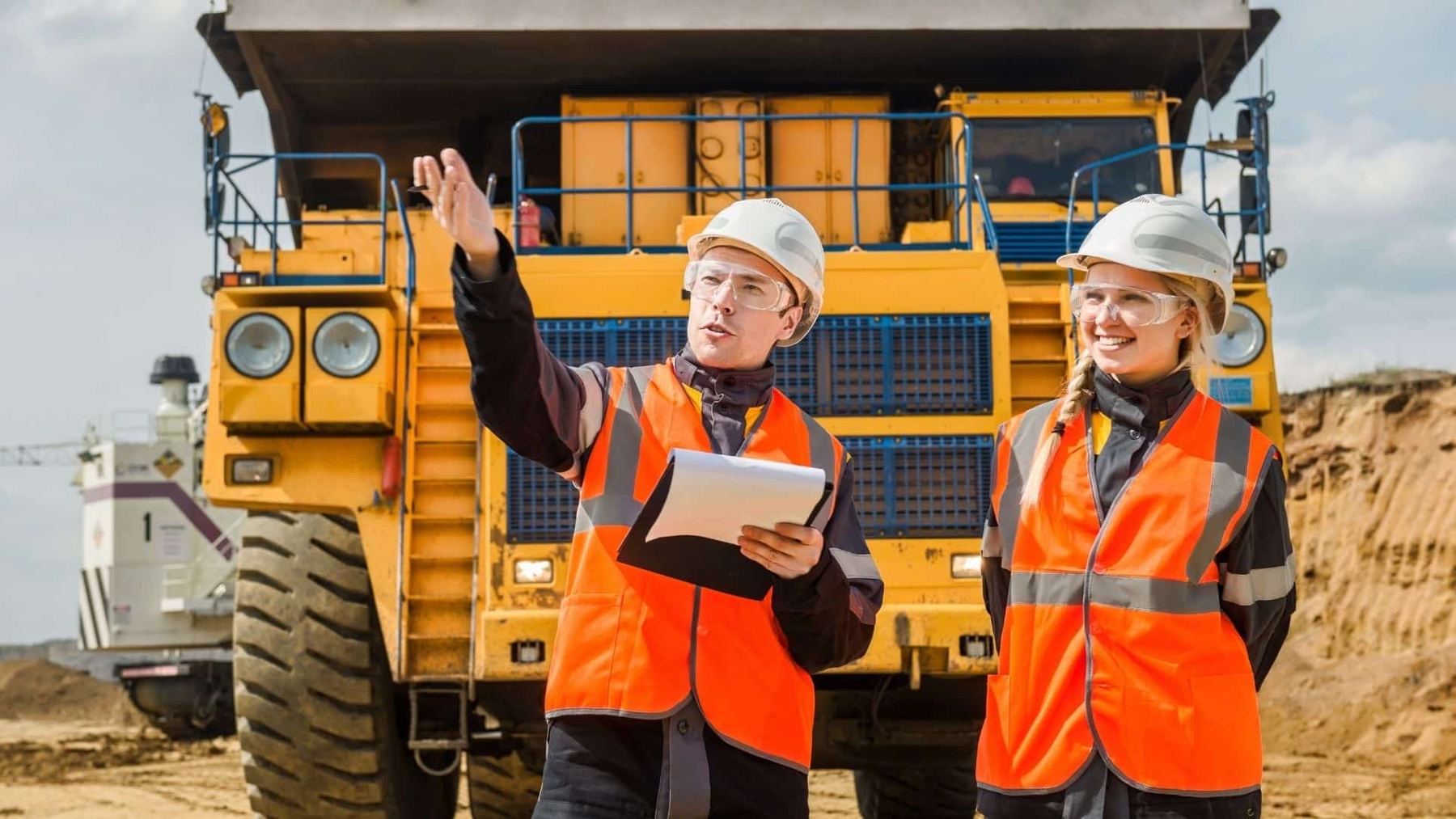How Can I Get an Entry-Level Mining Job in WA?

Western Australia’s mining industry is alive and well, with record employment levels of over 300,000 employees in 2025 (jobsandskills.gov.au). This growth is driving a high demand for new workers, even those without experience, to fill entry-level roles across mine sites. If you’re wondering how to land an entry-level mining job in Western Australia, this guide will walk you through typical starter roles, the qualifications you’ll need, ways to stand out, and what to expect from a mining career.

Typical Entry-Level Mining Roles
Breaking into mining usually means starting in an entry-level position that doesn’t require prior mining experience. Here are some common roles to consider:
- Driller’s Offsider: Often described as the ultimate “foot in the door” mining job, a driller’s offsider works on drilling crews. Offsiders handle tasks like setting up drill rigs, connecting pipes, retrieving core samples, and lugging heavy sample buckets for 12-hour shifts. It’s very physical work in remote outdoor conditions (think heat, dust, long days), but it pays off – offsiders in WA earn around $110k–$120k a year on average. Stick it out in this role, and you could progress to become a driller (who can earn even more).
- Labourer / Trade Assistant: General mining labourers and trade assistants help keep sites running by doing basic manual work and assisting tradespeople. Duties might include cleaning and maintaining equipment, carrying materials, and helping fitters or electricians with simple tasks. These roles don’t require a trade qualification, although strong work ethic and hands-on skills are key. Having a White Card (construction safety card) is usually required for labourers, and a forklift or telehandler ticket can be a bonus. Pay can vary, but entry-level site labour jobs often still earn well above average wages (commonly in the ~$70k–$90k range, with higher end for FIFO site-based roles).
- Dump Truck Operator: Driving those giant haul trucks in open-pit mines is a classic entry-level mining job, especially in iron ore and gold operations. Many companies offer mining traineeships in WA for haul truck operators, you undergo training to learn how to operate the massive dump trucks used to haul ore. No road driving experience is needed for some trainee programs, though having a heavy rigid truck licence or at least a full manual driver’s licence will make you a stronger candidate. New operators can start on impressive salaries (often around $80k–$100k a year, depending on the roster). Over time you could advance to operating larger machinery or supervising operations.
- Field Assistant / Sample Technician: Field assistants work with exploration and geology teams. This job involves collecting rock and soil samples, mapping out sample sites, and sometimes assisting with the setup of drill sites. You might be camped in remote areas for weeks, helping geologists by carrying equipment, labeling samples, and maintaining camp facilities. It’s a great way to enter the exploration side of mining if you love working outdoors. While it’s hard work, it doesn’t usually require formal qualifications. A driver’s licence and bush survival skills help. Salaries can start in the range of $70k–$85k, and the experience can pave the way to roles like pit technician or even trainee geologist.
Required Qualifications & Skills
Essential Certificates
- White Card: Mandatory construction induction certificate required for mining site entry.
- Working at Heights and Confined Space tickets: Valuable for specific site tasks and safety compliance.
Necessary Licences
- Manual Driver’s Licence: Essential for site mobility.
- Heavy Vehicle Licence: Highly beneficial for operating larger vehicles and machinery.
- Medical and Fitness Requirements
- Passing a pre-employment medical and drug/alcohol screening is standard. Mining roles demand physical fitness due to the rigorous working conditions.
How to Stand Out
When dozens of hopefuls are vying for the same entry-level position, you need to make yourself memorable. Here are some strategies to stand out from the crowd:
-
Leverage your networks: In WA’s close-knit mining industry, who you know can be as important as what you know. Start by building a presence on LinkedIn – connect with mining professionals, join groups related to mining jobs, and follow companies that you’re interested in. Networking can also mean reaching out to friends or acquaintances who work in mining for advice or referrals. Recruitment agencies are another crucial network: we recommend registering with a specialist mining recruitment agency. We have relationships with many mining employers and often hear about jobs before they’re advertised publicly. By submitting your CV to our talent database (it’s free on our website), you get on our radar so we can match you to suitable entry-level opportunities as they arise. We’ll help guide you through the process and put your name forward when the right role comes up.
-
Tailor your applications: When you do find a job to apply for, make your application count. Tailor your resume to highlight any transferable skills, for instance, if you’ve done physical labor, trades training, or even sports, emphasise the fitness, teamwork, and discipline aspects. Include any relevant tickets (even things like a forklift licence or CPR certificate show useful skills). Write a brief cover letter expressing your enthusiasm for the role and willingness to work hard and learn. Remember to address the required skills listed in the job ad. A well-crafted, role-specific application shows you’re serious and attentive, qualities every employer appreciates.
-
Keep learning and upskilling: Another way to stand out is by proactively gaining skills before you’re even hired. We mentioned certifications like the White Card and others, obtaining those on your own initiative is a big plus. You could also consider short courses or skill sets like a Surface Extraction Operations course or Mining Safety induction if available through TAFE or private providers. Even a day course in basic machine operation or a mine-site simulator training can bolster your resume. This initiative demonstrates your commitment to a mining career. Plus, if you’re waiting for that first break, you might as well use the time to become an even more attractive candidate.
Realistic Expectations
Finally, it’s important to go in with your eyes open. A mining job can be incredibly rewarding, but entry-level roles come with unique challenges and a learning curve. Here’s what to expect from life as a new miner:
-
FIFO lifestyle adjustments: Many beginner mining roles in WA mining are FIFO (Fly-In Fly-Out) from Perth or regional towns. Typically, you’ll be on roster cycles like 2 weeks on, 1 week off (or sometimes 8 days on, 6 off, etc.). That means long stretches away from home, living in a remote work camp. Camp life provides the basics, usually a private room or dongas, shared facilities, and meals in a mess hall. It can actually be pretty comfortable these days, but being away from family and the city requires mental adjustment. Prepare for limited phone reception at times and odd sleep schedules if doing night shifts. Make sure you and your loved ones discuss how to handle the time apart. On your week off, you’ll have a lot of free time, but you might also be recovering from 84-hour work weeks. FIFO isn’t for everyone, but many newbies grow to enjoy the routine and the sense of camaraderie on site.
-
Entry-level pay and progression: There’s no denying that mining jobs are well paid, even at entry level. It’s common for total packages (including bonuses and site allowances) to start in the $80k+ per year range for roles like truck operators or offsiders, which is far above most graduate or unskilled jobs in the city. However, remember that these high salaries often compensate for the remote location and demanding nature of the work. Your goal should be to learn as much as possible in your first year or two. By gaining experience, you become eligible for promotions or higher-paying roles. For example, an offsider can train up to be a driller (potentially boosting salary toward $150k), and a truck driver can move onto bigger machinery or a supervisor track. The career pathways in mining are diverse, you could eventually go into training roles, safety positions, or move into different departments (a field assistant might become a geology technician, for instance). So view your entry role as the first step in a long, fruitful career. Be patient, work hard, and the pay increases and advancements will come with time.
-
Safety and lifestyle trade-offs: Working in the mines can be challenging both physically and mentally. Expect early mornings (pre-dawn wakeups are normal), 12+ hour shifts doing manual tasks, and strict safety routines every day. The work can be repetitive and tough on the body. Fatigue management is crucial, it’s important to pace yourself and prioritise safety over speed, especially as you get used to the environment. On the upside, most companies nowadays place huge emphasis on safety training and support. You’ll likely have a buddy or mentor on site to show you the ropes. The mining community is generally welcoming to those who show a genuine willingness to learn. Keep a positive attitude through the rough patches and take advantage of the support systems (like on-site health services or employee assistance programs if offered). Over time, you’ll adapt to the lifestyle. Many people come to love the FIFO rhythm and the unique experiences that come with working in Western Australia’s iconic mining regions.
Starting a mining career with no experience is entirely possible – thousands have done it, and with the current demand, opportunities in entry-level mining jobs Western Australia are abundant. By understanding the roles available, ticking off the necessary qualifications, and approaching your job search with determination and the right attitude, you can land that first mining job. Remember, we’re here to help too – at Scotford Fennessy we specialise in mining recruitment in WA and are eager to assist new entrants in finding their way into this exciting industry. The mining sector can offer a life-changing career path with great rewards. With preparation, perseverance, and a bit of grit, you’ll give yourself the best chance to get your start in WA’s mining boom.

The Right People Make Life Easier
We’ll make sure your business gets the right person. The first time. We want you to invest in someone who is a good fit for your company culture. Someone with aptitude who can capitalise on opportunities and realise your business goals.
You know how important it is to get recruitment right, but it’s not an easy process without someone to guide you through it. That’s what we’re here for. We’ll find the person you need for tomorrow so you can focus on what your business needs today.